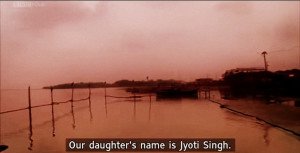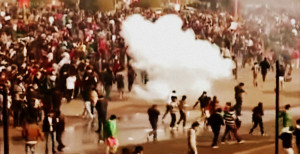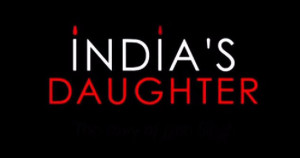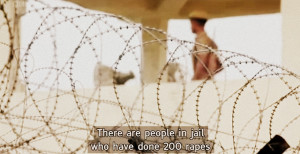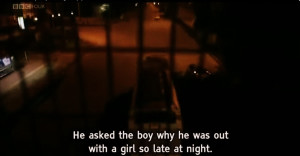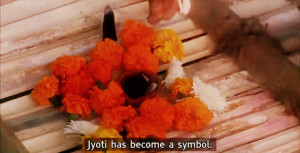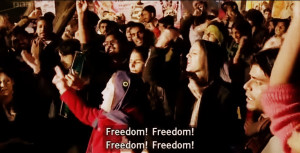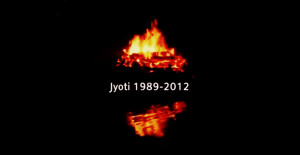India’s Daughter: Why We Shouldn’t Be Silent
India’s Daughters & Sons have grown up in a nation where sexual violence and rape is an everyday reality, like in some other countries. Here, however, the violence is so pervasive that it had jaded us. But in 2012, the Delhi Gang Rape, where a 23-year-old medical student was gangraped, tortured and killed in a public bus, proved a collective tipping point. The nation was moved from indifference and quiet frustration towards impassioned street protests and action. The horror sparked a questioning of a system where this was allowed to happen. The protesting citizens demanded not only justice for the victim Jyoti Singh and other women who had suffered similarly but also security, protection, rights and dignity for all women.
Instead of connecting with the people’s sentiments, the Congress Government, reacted to the people’s anger and voices with water canons and tear gas. It tried to subdue the people and dilute their movement; the chief minister came on television and made desperate attempts to downplay the protests. But the government had misjudged, and how. Their draconian actions only added fuel to the protests, which raged on. For this naivete, the Congress would pay a heavy price.
This is 2015; we are seeing a new government, the BJP, repeat the same mistake by imposing a nationwide ban on filmmaker Lesliee Udwins’ ‘India’s Daughter’ a BBC documentary based on the Delhi Gang Rape. This new Government has gone on record to say that such films tarnish the image of the country in front of the world. They tried to ensure that the film was banned globally. They called it a conspiracy by the west to show India in a bad light.
The First Investigation Report (FIR) filed by the Delhi police against the filmmakers under Sections 504, 505, 509 of the Indian Penal Code refers to intentional insult with intent to provoke breach of peace, statements conducive to public mischief, word, gesture or act intended to insult the modesty of a woman. The filmmakers also were charged under the Section 66A of the IT Act, 2000, which demands punishment for sending offensive messages through a communication service
Is this justified?
We watched India’s daughter (Yes we did watch it just a few hours before it was banned!). It is an average documentary but an important one. It relies not on any narrative but instead hangs on the words of the people involved, of Jyoti’s parents, one of the rapists, members of the establishment, and it is critical in allowing us to hear the cold truth.
The statements in the film of the rapist Mukesh Singh about girls and their place in society, their own responsibility for rape, and the equally outrageous statements from defense lawyers for the six perpetrators are supposedly the main reason for banning the film. But these statements are not unheard of, they reflect the common sentiments that we hear in our everyday lives.
Between 2012 and 2015, we have heard some of the most repressive and misogynistic statements by public figures on the Delhi Gang Rape.
Rapes happen in India, not in Bharat (referring to rural India). It happens because of the western influence and culture.” Mohan Bhagwat, chief of the Hindu Nationalist organization , Rashtriya Swayam Sevak Sangh
“Boys make mistakes. Handing death sentence for rape is not fair. There will be changes in the law if we come to power.” Mulayam Singh Yadav, Leader of the Samajwadi Party in Uttar Pradesh
“She should have taken God’s name and could have held the hand of one of the men and said ‘I consider you as my brother, brother I am helpless. She should have held their feet and said prayers. Then the misconduct (referring to rape) wouldn’t have happened. Mistake is never from one side alone” Self styled God man Asaram who is currently in prison and facing charges for raping a minor girl.
Our Honorable President Pranab Mukherjee’s son Abhijit Mukherjee went as far as insulting the Delhi protesters by saying, “dented and painted women protested against the gang-rape. He called the anti-rape agitation a nautanki (drama). He said the women protesters were good-looking but did not exactly look like students as claimed. He said they looked like people going to discotheques.
And there were many more such opinions. Thanks to the media, some of these were aired widely and there was outrage in response from civil society. But one wonders why did the government not respond to these? Why, instead, ban a film that simply seeks to lift these terrible remarks into public light. Why the water cannons and tear gas fired at peaceful protesters, women and men alike? Why do most of the above-mentioned people still hold their positions of power and enjoy public life despite giving us enough evidence that they are among the most repressive minds in the country?
That said, ‘India’s Daughter‘ cannot be and should not be looked at through only one lens. It not only showed the opinions of a rapist but also attempted to question the dichotomy within Indian society and raised important questions regarding how we perceive our women. It applauded the grit and determination of civil society and showed varied opinions on how the protests were a turning point in our fight against sexual violence.
The film sensitively portrayed the love and loss of the parents of Jyoti who struggled hard and broke all gender stereotypes to give their daughter the best of everything. It exposed that many among us are insecure with this breed of young, independent women who live their lives on their own terms and are supported by their families in doing so. It told us how these terrible men took it upon themselves to teach Jyoti and her friend a lesson as they crossed the ‘laxman rekha’ (moral boundary put forth by the society).
But one also needs to question the filmmaker and the BBC on some aspects of the documentary. Why did they not wait for the final judgment by the Supreme Count on the Delhi Gang Rape? The film might yet have an impact on the judgment, and, in considering due process, how fair is that? Would this be permissible in the UK or any other developed country in the world? How did the filmmaker acquire the permissions to interview Mukesh Singh? Was the documentary presented as being made for study or for commercial purposes?
We all know that the Government denies permissions to NGOs and human rights activists to work in prisons, so how did Udwin manage to get through? Finally, why did the filmmaker not think about the rights and dignity of the family of the accused, especially the wife and child of one of the rapists, why was no precaution taken in protecting their identity?
We strongly advocate for freedom of speech and expression in our country and believe varied opinions must be heard; there must be a right to dissent, agreement to disagree. The culture of a ban is opposed to the fundamental principles of democracy. Governments cannot decide for people, let the people decide for themselves.
Sexual violence is not only India’s problem; foreign participants are welcome in our country to contribute to the debate and help with solutions, but they need to be sympathetic to the local realities and must respect our law. They must be introspective and ask the question, ‘would this be permissible in my country?’ if the answer is no then they must resist the temptation to experiment here.
Jyoti’s parents were generous to share the details of her life with us. We must thank them for that. Their loss is irreparable, their pain unimaginable. The only way to pay respect to the spirit of Jyoti and other victims of sexual violence is to ensure their stories help us build a society that strives to be equal, empathetic and just.


